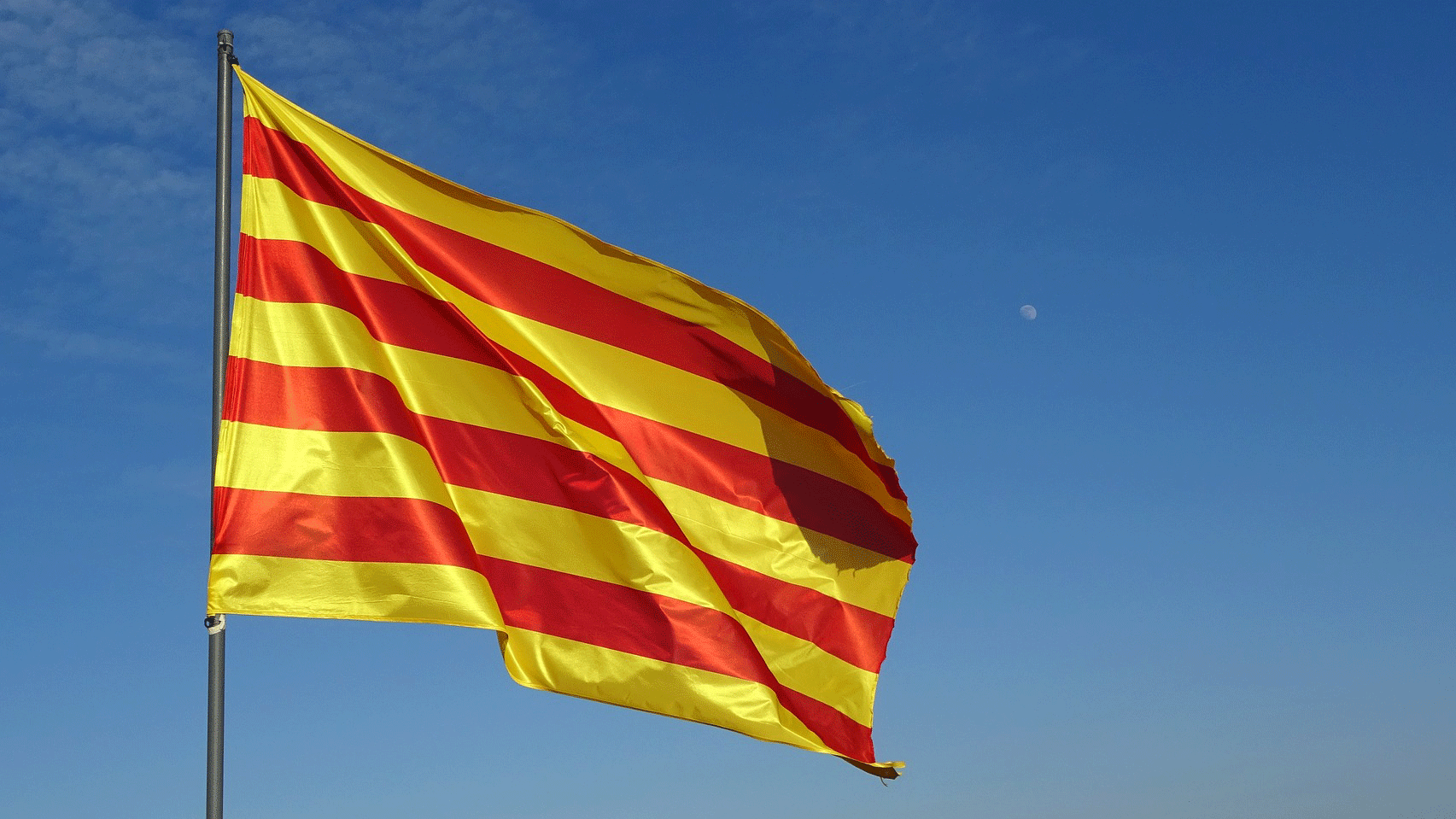Catalonia’s official quest for independence from Spain was squashed by the country’s constitutional court Tuesday, temporarily ending the long-simmering separatist movement towards total autonomy.
Spain’s central government has now taken direct control of the Catalonian government, sacking more than 100 officials, chasing its former president to Belgium and attempting to restore order to the region.
Catalonia’s bid for succession has placed Spain in its worst political crisis since the 1970s. To gain a better understanding of this complex situation, ASU Now turned to Jeffrey Kassing, a professor of communication studies in Arizona State University's School of Social and Behavioral Sciences who teaches an annual study-abroad class in Catalonia.

Jeffrey Kassing
Question: Can you give us some historical context why Catalonia wants succession from Spain?
Answer: There are several key reasons. First, Catalans see themselves as distinct culturally from the rest of Spain. The history of Catalonia as a European nation state predates modern Spain by several centuries. In fact, Catalonia was a thriving economic/Mediterranean power from the 12th to 15th centuries, which spanned from Barcelona to Naples, Sicily and Athens. Catalonia has its own language derived from Latin that achieved status similar to Spanish, French and Italian during the development of Europe.
Second, there is a history of repression against Catalonia, with their language and government institutions being banned on several occasions. This was particularly evident during Franco’s rule from the late 1930s through the 1970s.
Q: Is there a financial subtext for Catalonia wanting its own government?
A: Catalonia currently and historically has maintained a robust economy. Many Catalans feel that the level of taxation the region incurs does not match the resources re-invested in Catalonia.
Spain would suffer economically if Catalonia would depart. Thus, there is support for keeping Catalonia as part of Spain.
Q: How do Spaniards outside of Catalonia feel about this issue?
A: My impression is that most Spaniards are quite dismissive of the Catalan independence movement. It is not well understood outside of Catalonia, particularly if people do not know the region’s history.
Catalans have a strong cultural identity that is lost on Spaniards generally. This takes the form of maintaining traditional festivals, dances and games as a key part of their culture through active participation in these activities. So their cultural practices aren’t simply folklore that exists in books and museums but rather something that is enacted routinely in public displays. For example, human tower building, or castells, is a unique Catalan sporting tradition. It is practiced widely throughout the region, routinely put on display at festivals and even has a biannual competition that draws the best teams, large crowds and a televised production.
Q: Speaking of sporting traditions, does the role of soccer play a part in this?
A: Yes. FC Barcelona (FCB) has a long and clear association with Catalonia. The team badge carries the Catalan flag on it as does the collar of the team’s jersey. During the Franco regime the stadium was one of the few places large groups could gather. Thus, it became a place where one could go and show their Catalan identity. Although finding itself in a tenuous place at the moment, the club has historically embraced its role and place as a representation of Catalan identity.
Catalan flag
A fierce rivalry exists with Real Madrid, the capital club and one that has become synonymous with Franco’s regime and the Spanish state. The rivalry is littered with stories and myths about the advantages Real Madrid received over the years in relation to FCB. So the rivalry between these clubs has mirrored and paralleled the perspective that Catalonia has been persecuted and disadvantaged by the Madrid-based centralized Spanish government.
Q: What do you teach in your class about Catalonia, and what is the work that you do give clarity about this complicated region?
A: The course begins with a focus on Catalan history and culture. We then examine the politics of the independence movement. The final part of the course considers the role sport plays in cultural identity generally, but particularly in Catalonia. The involves a close examination of Barcelona playing host to the 1992 Olympics and the role FCB plays in embodying Catalan identity. All of this is brought together when we visit Barcelona. There we see the distinct art and architecture that makes the city uniquely Catalan. We examine historical sites that remind students of the long history in the region and the struggle against repression (e.g., bomb shelters used in the Spanish Civil War). And we visit the Olympic Village and Museum as well as the FCB stadium and museum.
On the first day of class I ask students to share why they wanted to take the course. Many are interested in studying abroad in Spain. To which, I pose the question, “What if I told you, you weren’t going to Spain but to Catalonia?” This serves to introduce the idea that while part of Spain, Catalonia is a place that sees itself as distinct from Spain.
On the research side, I am preparing to collect data from foreign supporters of FCB related to their impressions of the club and how it represents Catalan identity. This is an exploration of the global brand FCB has developed and the degree to which the club has exported the idea of Catalan identity and independence.
Top photo: The Spanish flag. Photo courtesy of Pixabay
More Law, journalism and politics

Annual John P. Frank Memorial Lecture enters its 26th year
Dahlia Lithwick, an MSNBC analyst and senior legal correspondent at Slate, is the featured speaker at the School of Social Transformation’s 26th annual John P. Frank Memorial Lecture on…

The politics behind picking a romantic partner
A new study reveals the role that politics play when picking out a romantic partner — particularly for older adults.“Findings show that politics are highly salient in partner selection across gender…

Tips to make tax season less taxing
When it comes to highly unpleasant experiences, filing taxes is probably up there with root canals — which is why people put off doing them. But tax season is here, and in an effort to alleviate…

